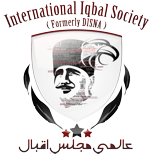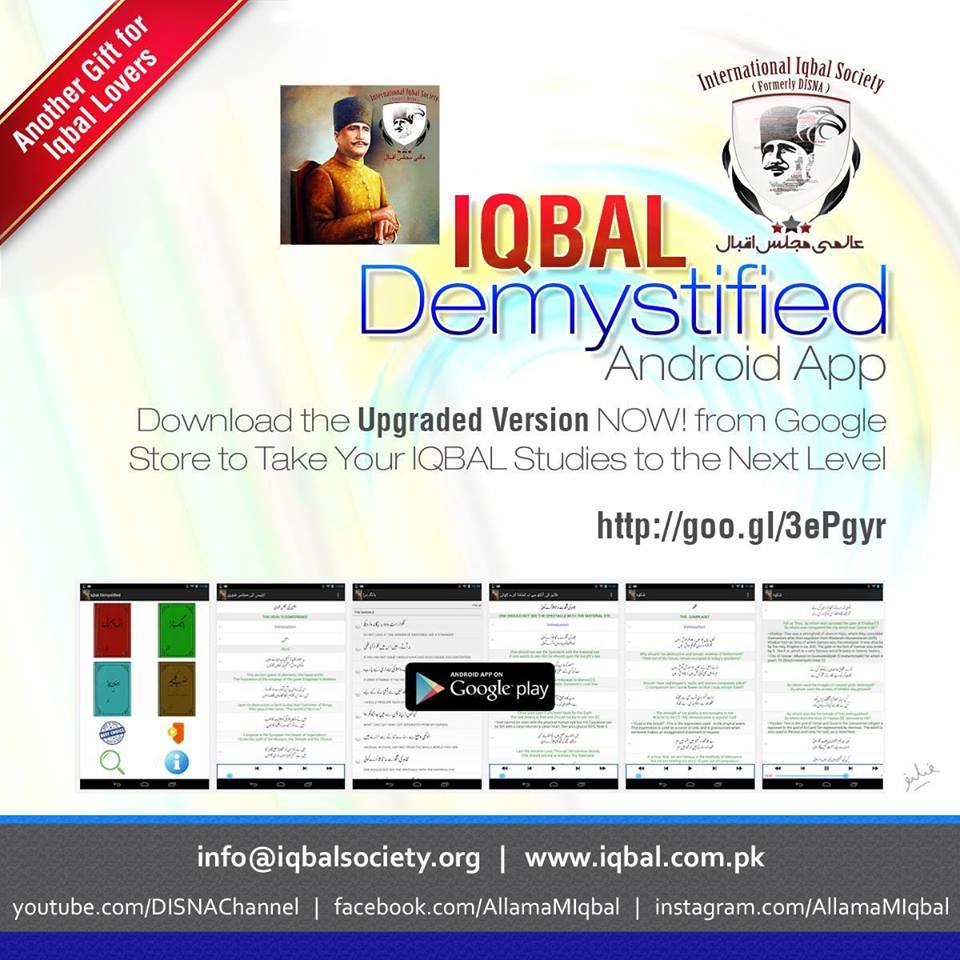Iqbal – The Internationalist
Mian Basheer Ahmad
The aftermath of the War of Independence of 1857 had kept the Muslims sad, sullen and inactive. It was Sir Syed who learnt and who taught his people that it was necessary for the Muslims to be educated that they must know and understand the superior scientific methods of the West, and thus be able to keep pace with other people in the race for self-realization and self-assertion.
Iqbal follows in the footstep of Sir Syed. He is the poet of Muslim national awakening. But to him there is nothing inconsistent in the love of Islam and the love of India. Iqbal has written probably the greatest anthem of the Indian peoples as a whole – ‘Sare Jahan Se Acha Hindustan Hamara.’ And Iqbal also has written that wonderful song of the Muslims – ‘Cheeno Arab Hamara, Hindustan Hamara, Muslim Hain Ham Watan Hai Sara Jahan Hamara.
There are some whose minds are so shuttered-in, that they see a contradiction between the two anthems. But there is none. For Iqbal was also a firm internationalist believing in the brotherhood of Islamic nations.
There was no intention whatsoever in Iqbal’s mind or philosophy, as narrow minded bigots try to make out, of conquering countries for Islam. All that Iqbal means is that Islamic fraternity is world-wide. And the poet would indeed have been the first to applaud Quaid-i-Azam Mohammad Ali Jinnah in saying that the Hindus and the Muslims when free would unitidly tell all aggressors “Hands off India”.
When slanderers brand those who fight for Pakistan as lacking in love for India, they forget the patriotic poems of the greatest Pakistani of all-Iqbal. Could any one but passionate lover of this land write as he writes in his first poem in his first publication Bang-i-Dara.
‘Hail O Himalay, O mighty Wall of the Land of Ind!
The heavens stoop to kiss thy brow,
The ages come and go
But thou art eternally young.
For Moses of Sinai there was but one vision,
Whilst thou art a panorama of vision glorious to the seeing eye”.
In this Tasvir-i-Dard, Iqbal writes his heart tormented at the thought that our alien masters bleed our land while we fail to unite:
“The sight of thee makes me weep, O India
For thine is the most tragic of all stories,
Leave not the trace of a single petal in this garden. O flower-gatherer,
Thanks to the feuds of the gardeners, their path is smooth”
O people of India! You will be destroyed if you do not understand,
Your very story will be erased from the book of the stories of nations,”
Iqbal’s words are as true as ever today.
Could there be anything more full of patriotic fervour than Iqbal’s Hindustani Bachoon ka Quami Geet, in which he sings:
The land where Chishti gave message of God,
The Land where Nanak sang song of unity,
The Land where the Tartars made their home,
The Land for which the Hedjazians left their deserts,
That is my country, that is my Motherland.
From 1905-1908, Iqbal was in Europe. Here he became deeply conscious of the effect of democracy and nationality in firing the European nations with a new spirit. But he also saw that the Imperialist nations were crushing the colonial peoples underfoot and were denying them the very rights which they themselves valued. In the poem which he wrote in this period, Iqbal prophesied in remarkable manner the downfall of Imperialism and the awakening of the oppressed peoples of the East.
“The lion which came out of the wilderness and upset the Empire of Rome,
I hear from the angels that he shall awake once more.”
At one stage early in his career, Iqbal fought with the idea of giving up poetry, for he thought, as he says in this own words, that:
“The nations that are achieving something have no taste for poetry.”
He too wanted the Indian Muslims to achieve something, and therefore he wished to give up poetry. Fortunately for poetry and for his nation, he was dissuaded from carrying out this idea.
Iqbal’s hatred for imperialism came out of a profound love for the peasant and the worker, for the wide masses of the people. Muslim poverty and backwardness had gripped his heart with the determination to change the destiny of his people. In The Candle and the Poet (1912), one of the greatest poems, Iqbal is already beginning to be influenced by social justice. Addressing the toiling peasant, he writes:
“Know thou the essence of thy being, O peasant.
Thou art the grain, thou the field, thou the rain; thou the harvest.”
The last stanza of the poem fortells revolution.
“The Birds will sing at the cry of the fowler,
The bud’s garment will be dyed with the blood of the flower-gatherer,
That which the eyes see, the lips cannot utter,
Dumb-founded am I to think what the World is and what it is to be.”
His Khizr-i-Rah (1922) hails the Soviet Revolution and the new proletarian movement, in which he rejoices.
“Arise, for associated mankind has now turned a new leaf,
And both in the East and the West, it is now the worker’s age.”
“Make thine own world, if thou art alive,
For life is the secret of Adam; the conscience of all true being,
In slavery becomes a mere shallow stream;
While in freedom, life is like the Ocean, free and boundless,”
A new sun has arisen from the womb of the earth,
O heaven! for how long will you mourn the fate of fallen stars?”
In his Zabur-i-Ajam, Iqbal writes of Revolution, burning at the injustice of capitalism:
“The master is making pretty rubies out of the blood of the workman’s veins.
Through the tyranny of these lords of the soil,
the fields of the peasants are all waste.
Revolution! Revolution, O Revolution!”
In his famous trilogy, Lenin,
And warm up the blood of slaves with the fire of belief,
And make the tiny sparrow engage the falcon.
‘Tis the age of the common people’s lordship,
So obliterate all marks of the olden days.
And the field which yields not food for the peasant
Burn every corn’s ear of that field”.
Iqbal is essentially a poet who preaches action. “By action alone is life made a heaven or hell”,” this is what he counsels in his poetry. Action to change the world, to change the destiny of his beloved people. And how? In his presidential address at the Muslim League session in 1930, he said:
“If the principle, that the Indian Muslim is entitled to full and free development on the lines of his own culture and tradition in his own Indian homeland is recognised as the basis of permanent settlement he will be ready to stake his all for the freedom of India.”
Today the Pakistan Movement embraces million’s of Indian Muslims. Iqbal’s call to action has won wide response and, more than anything else, the movement for the freedom of the Indian Muslims is developing with the same ideals of patriotism, democracy, equality and unity which Iqbal preached.
The Punjab Muslim League has issued its Manifesto now championing the cause of the toiling masses, emphasizing the unity of interests between all the peoples of India against British Imperialism.
Iqbal had laid down manifesto of Pakistan already in his glorious poetry- “People’s War.”
Source:
By Mian Basheer Ahmad, Bar-at-Law, The Eastern Times,
Lahore, March 25, 1945 (The author himself a prolific writer was Editor of a Urdu journal called: Humanyun, published from Lahore. Mian Basheer Ahmad was Organizing Secretary of the All-India Muslim League Annual Session held at Lahore on March 21-23, 1940.






